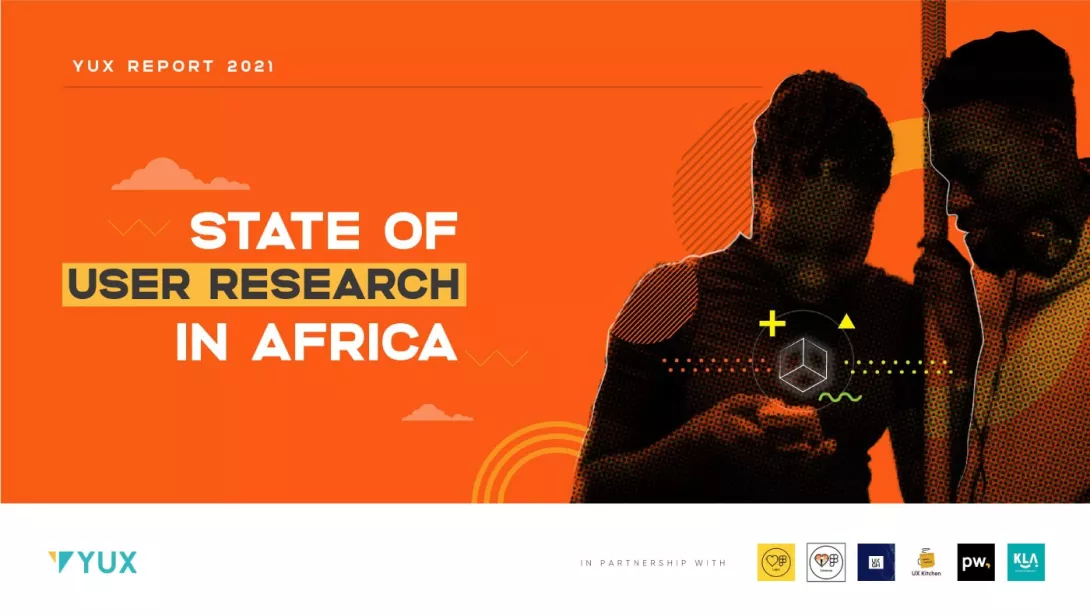
YUX, a pan-African research and design agency headquartered in Senegal and with teams in Lagos, Accra, Kigali and Abidjan, launched its flagship “State of User Research Report.” Our work at YUX focus on user research because we think it is crucial and often overlooked when we talk about building services adapted to specific populations and needs. This report is created to help startups entrepreneurs, product managers, user researchers and designers understand to facilitate the conversation and help push user research forward.The study, conducted in partnership with Friends of Figma Lagos and Cotonou, UX Kitchen Nairobi, Kampala Design Community, People Who Africa and UX Ghana, is the first study on user research in Africa.
The result of this study is based on remote interviews conducted with 22 industry professionals from various countries across the continent and 129 survey responses from 17 countries. This study summarises tools, methods, and challenges people across the continent experience conducting user research or user design at large.
“As the field of user design grows rapidly in Africa, we felt it was about time to get some data on the best practices and share the challenges practitioners are facing daily” - Yann LE BEUX, Co-founder YUX.
Key findings from the report are:
62% of respondents have no dedicated user researcher in their organisation
Google forms take the lead on tools used for research
63% conduct research three or more times in a year
58% consider participant recruitment the most prominent research challenge
Most participants mentioned user research/discovery as the stage of the product development that needs tools adapted to the African context.
As we have seen, user research in Africa is still at its dawn. Most of the people we interviewed expressed some difficulties conducting research, such as :
Participant recruitment
Getting management buy-in
Finding practical tools for the African context
Interestingly we also noted the critical role that sales teams and field agents play in user research. Even if not formalised, this process, quite peculiar to the African context, enables companies to get a lot of regular feedback from their end-users, notably in the informal economy.
Speaking on the challenges researchers face from the report, Yann added, “Participant recruitment is the greatest challenge facing research from the surveys and interviews. This is a global research challenge; however, given our peculiar realities on the continent, it was also interesting to see some tools are being designed to address these challenges.”
During the interviews, researchers, user designers, and product leaders showed a need for more information sharing among professionals across the continent. As part of this first study, we will be organising community events to discuss the findings of this study with design communities across the continent and receive feedback for future studies.
We noticed during the interviews that whether we spoke to someone in Dakar, Lagos, Nairobi or Kampala, getting stakeholder buy-in for research was challenging. This isn’t a challenge only user researchers face, as we also spoke to designers and anyone who led user research in their organisations. So, to get the full benefits user research can provide, companies (well, leaders in companies) have to start by prioritising user research.
So, to get the full benefits user research can provide, entrepreneurs and company executives should be better informed and trained on the benefits of UX design and research. On the other hand, product managers and designers should also communicate more clearly their research findings and their impact on the business, ideally by quantifying them.
We were also surprised to see the simplicity of the tools people use mainly for research like google form, google slide, or WhatsApp to a lesser extent. Our qualitative insights point to the struggle with researching in areas where language is a barrier, lack of well-adapted tools for the African context, particularly to address research in rural areas with power issues and places where people aren’t as tech-savvy.
Some good products address some of these challenges, like Kimoyo Insights or LOOKA, but there is a huge opportunity to build more user research products.
The report is available for download here.
